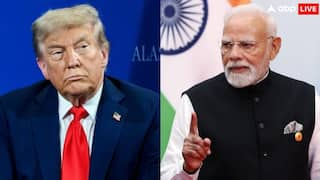Explorer
Merit dominates Team Modi 3.0, caste gets short shrift

In concentrating a bit too much on Nirmala Sitharaman’s super elevation — to Cabinet rank and as Minister for Defence — we may be missing the wood for the trees. There may be some statistical delight in the fact that Sitharaman is independent India’s first full-time woman Defence Minister, an alumnus of the Jawaharlal Nehru Nehru (an institution which tilts to the Left and often to the extreme-Left), one among the many spokespersons of the BJP before she became a Rajya Sabha member and was inducted in Prime Minister Narendra Modi’s first Cabinet as a Minister for State with independent charge of commerce, and an early advocate of Modi as the prime ministerial candidate in the build-up to the 2014 general election. But there is more to Sunday’s ministerial reshuffle than her elevation.
The changes were refreshing, and not just for the induction of new faces. Two conventional and often narrow considerations, electoral and caste, were done away with. The maximum number of inductees were from Uttar Pradesh and Bihar, both of which States have no elections coming soon. The same can be said of States such as Madhya Pradesh and Rajasthan, which also saw their representation rise. On the other hand, those such as Gujarat and Himachal Pradesh, where Assembly polls are due later this year, drew a blank. Clearly, the Prime Minister and BJP chief Amit Shah were not overly bothered by electoral politics in the immediate term.
Caste and class balances too have been given short shrift. There is no discernible movement in seeking to accommodate representatives from various castes to appease the latter. The induction of a Brahmin face, Shiv Pratap Shukla, can be interpreted as a move to balance out Chief Minister Yogi Adityanath’s Thakur credentials. But this analysis suffers from two flaws. The first is the Shukla is hardly an established ‘Brahmin leader’ in Uttar Pradesh. The second is that after taking to the spiritual order, Yogi Adityanath is not and does not want to be considered as a ‘Thakur leader’ in the State.
Besides trashing caste and immediate electoral considerations, the Prime Minister kept his allies — old and new — at a distance in the Sunday shake-up. The Janata Dal (United) is upset that it was not even invited for the oath-taking ceremony at Rashtrapati Bhavan, let alone be asked to join the Union Council of Ministers. The BJP’s oldest ally, the Shiv Sena, gained nothing in the new scheme of things and kept away from the function. It will be incorrect to lump the two developments together. Given its stance of embarrassing the BJP and behaving more like an opponent than a partner, the Shiv Sena could not have expected anything better. Moreover, for the BJP, there is always Sharad Pawar’s Nationalist Congress Part to reach out to, if the Sena decides to snap links. Privately, many BJP leaders, fed up with their ally’s antics, are hoping the Sena-BJP coalition collapses and their party can make a fresh beginning in the State with a less mercurial partner.
Follow Blog News on ABP Live for more latest stories and trending topics. Watch breaking news and top headlines online on ABP News LIVE TV
View More



























